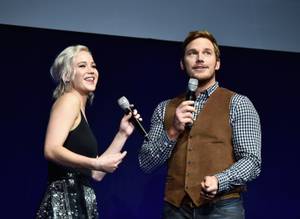
Hidden Figures Taraji P. Henson, Kevin Costner, Octavia Spencer. Directed by Theodore Melfi. Rated PG. Opens Friday citywide.
The real-life subjects of Hidden Figures deserve all the praise and attention the movie gives them, but a movie about great people is not the same thing as a great movie. The filmmakers behind Hidden Figures spend nearly the entire running time coasting on the goodwill toward their subjects, pandering to the audience with cheesy, crowd-pleasing moments that often simplify and diminish the struggles the real people endured. The movie focuses on three black women who worked at NASA in the early days of the space program, playing integral roles in sending the first Americans into space. Mainly, though, it’s about Katherine Johnson (Taraji P. Henson), a math genius whose calculations were a key component in John Glenn’s first orbital flight (which provides the movie’s climax), and who worked for NASA all the way through the space shuttle era.
Johnson’s contemporaries, computer programmer Dorothy Vaughan (Octavia Spencer) and engineer Mary Jackson (Janelle Monáe), are relegated to subplots that offer a handful of easy signposts on their journeys from ignored lower-level employees to valued contributors. Initially all sequestered in a room for black women who worked on calculations for their mostly male, white colleagues, Katherine, Dorothy and Mary eventually rise to higher positions through personal determination and sheer talent, while often being ignored and undermined along the way. Writer-director Theodore Melfi and his co-writer Allison Schroeder depict basic roadblocks for each character that lend themselves to rousing, feel-good solutions, as when Katherine’s boss Al Harrison (Kevin Costner), the head of NASA’s Space Task Group, physically tears down the sign designating a far-off restroom for use by “colored” only. It’s easy to cheer for his undeniably just actions, even if Al’s presence as a major character threatens to turn Hidden Figures into yet another movie in which Costner plays a white guy who solves racism.
The characters’ personal lives also end up as perfunctory subplots, particularly Katherine’s romance with an upstanding colonel (Moonlight’s Mahershala Ali), which leap-frogs from a shy meeting to a marriage proposal in a few quick scenes. Henson, Spencer and Monáe all project confidence and warmth as the women who had to overcome so much just to perform jobs for which they were already qualified, and it’s hard to fault the movie’s noble intentions. Even Costner, on autopilot in a familiar role, brings a certain gruff, paternal charm to his role. But the movie never trusts its audience to make the necessary connections, and eventually its story of real-life triumph over adversity becomes chintzy and disingenuous. If the actual struggle of these actual people followed such a direct, effective and harmonious path, nobody would have bothered making a movie about it.







